© Turkuvaz Haberleşme ve Yayıncılık 2026
In the heart of New York, and yet somehow beyond time, I found myself stepping into a space that felt more like a sanctuary than an art studio. Angelina Jolie’s atelier dedicated to women, their stories and their struggles welcomes you not with pretense, but with purpose.
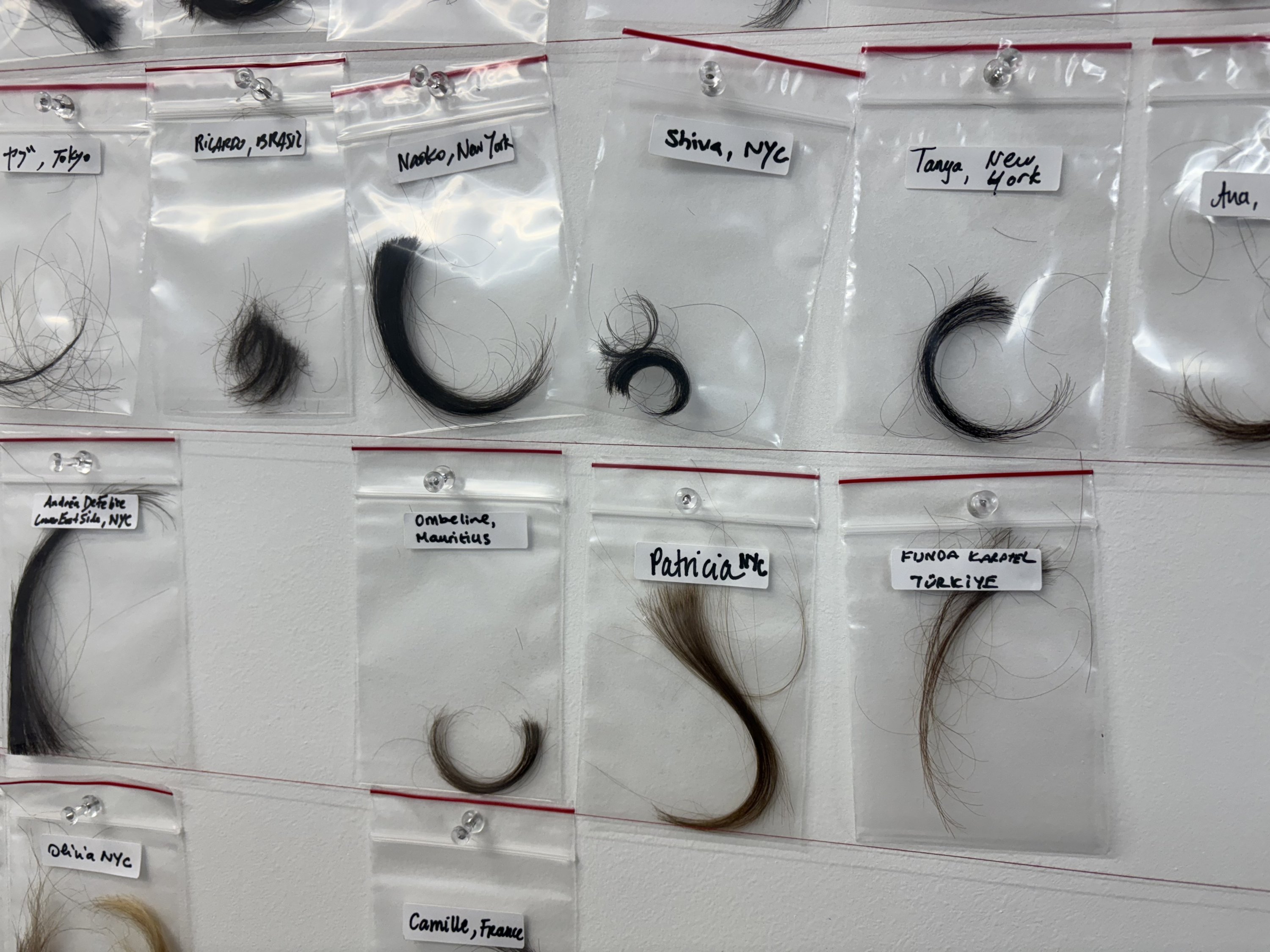
As I entered, I was greeted by a familiar scent: Turkish coffee. Yes, you heard that right. Our very own coffee had earned its place at the top of the menu, served with a date on the side. I asked about it, curious. “It’s a favorite,” they told me. “That’s why it’s first on the list.” When the space first opened, the coffee was $4.75. Today it’s $7.50. But this isn't about inflation. It's about representation. Turkish coffee, here, has become more than a drink, it’s a symbol of multicultural resistance.
After finishing my Turkish coffee, I wandered downstairs to the exhibition space, only to find myself immersed in something much bigger than a gallery show. This was a visual cry for justice. Angelina Jolie had cut her children’s hair with her own hands and contributed the strands to this exhibit in solidarity with the women of Iran. This wasn’t just a gesture. It was a contribution to the collective memory of women’s resistance.
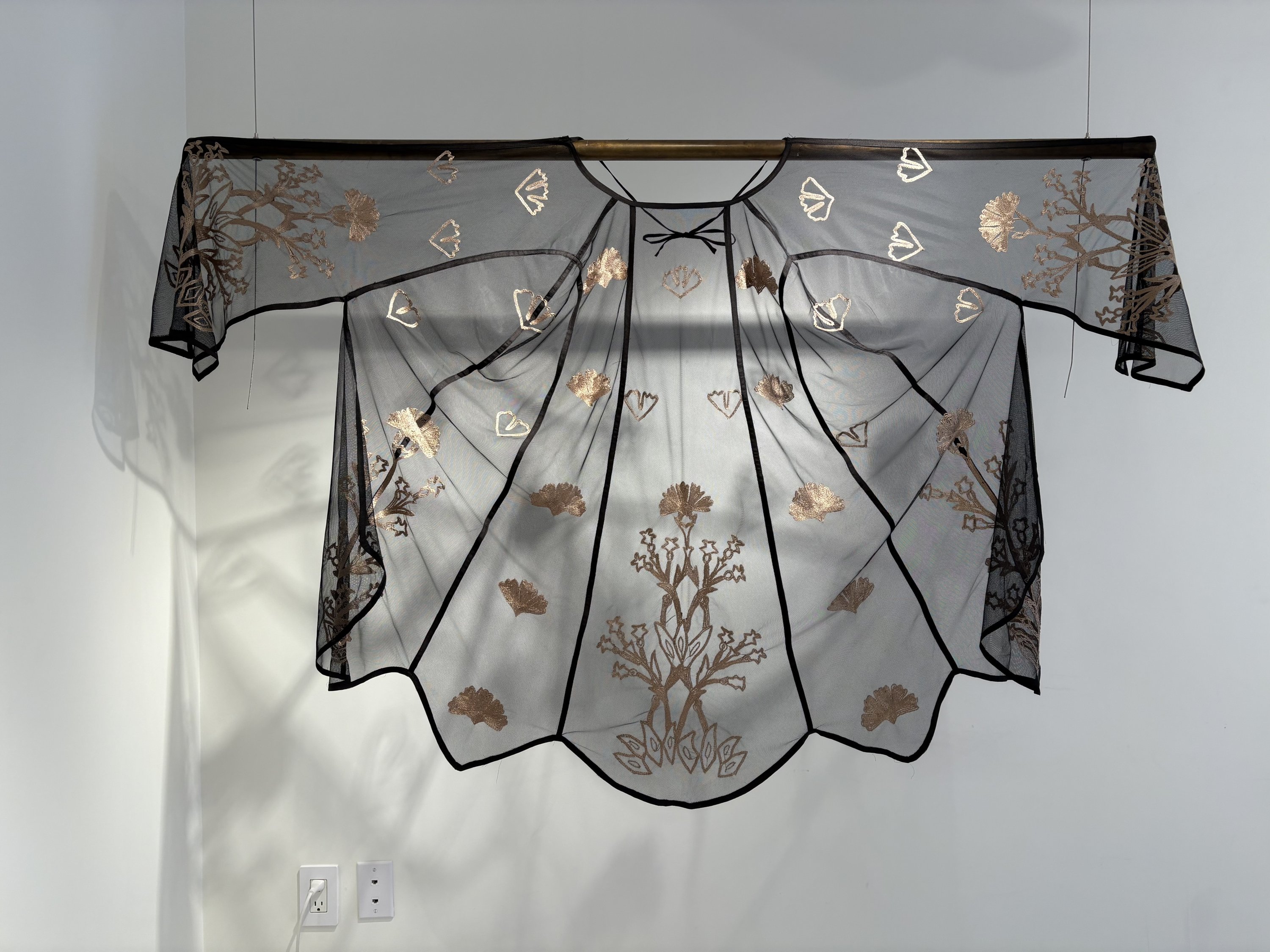
The exhibition is part of "Strand for Women," a powerful project by French artist Prune Nourry. It began in New York in 2023 and returns in 2025 with even more artists and an even more urgent message: to make visible the global struggle for women's freedom. Nourry’s project weaves together strands of women’s hair into a symbolic network of protest. After the death of Mahsa Amini, Iranian women cutting their hair became an act of defiance. Strand for Women seeks to preserve this act as a visual archive of resistance.
The list of contributors has grown beyond Jolie herself. Artists and activists such as Shirin Neshat, Newsha Tavakolian and Kubra Khademi have joined. Their work is a fusion of aesthetics and political defiance, telling stories that words cannot. Collaborations with creators like Andrew Ondrejcak and Zarif Design add yet more layers to this textured project.
Jolie’s daughters, Shiloh and Zahara, also donated their hair to the exhibit. Because this exhibition doesn’t speak with words, it speaks with strands. Each lock is a woman’s voice: silenced, perhaps, but never surrendered. I, too, cut my hair. Why? Because sometimes, to say something, words are not enough. Sometimes a strand of hair says more than a thousand sentences. It becomes a symbol. A quiet scream. And I wanted my voice to join that collective cry.
Every corner of the exhibition hosted a woman with a story: artists, academics, journalists and activists. Eye contact replaced conversation. Silence spoke volumes. One woman from Afghanistan told me: “The real struggle is to make the invisible visible. This isn’t just about Iranian women it’s for every silenced woman, everywhere.” She was right. In this space, Angelina Jolie isn’t just a Hollywood star. She’s a messenger, a sister, a host of something greater."
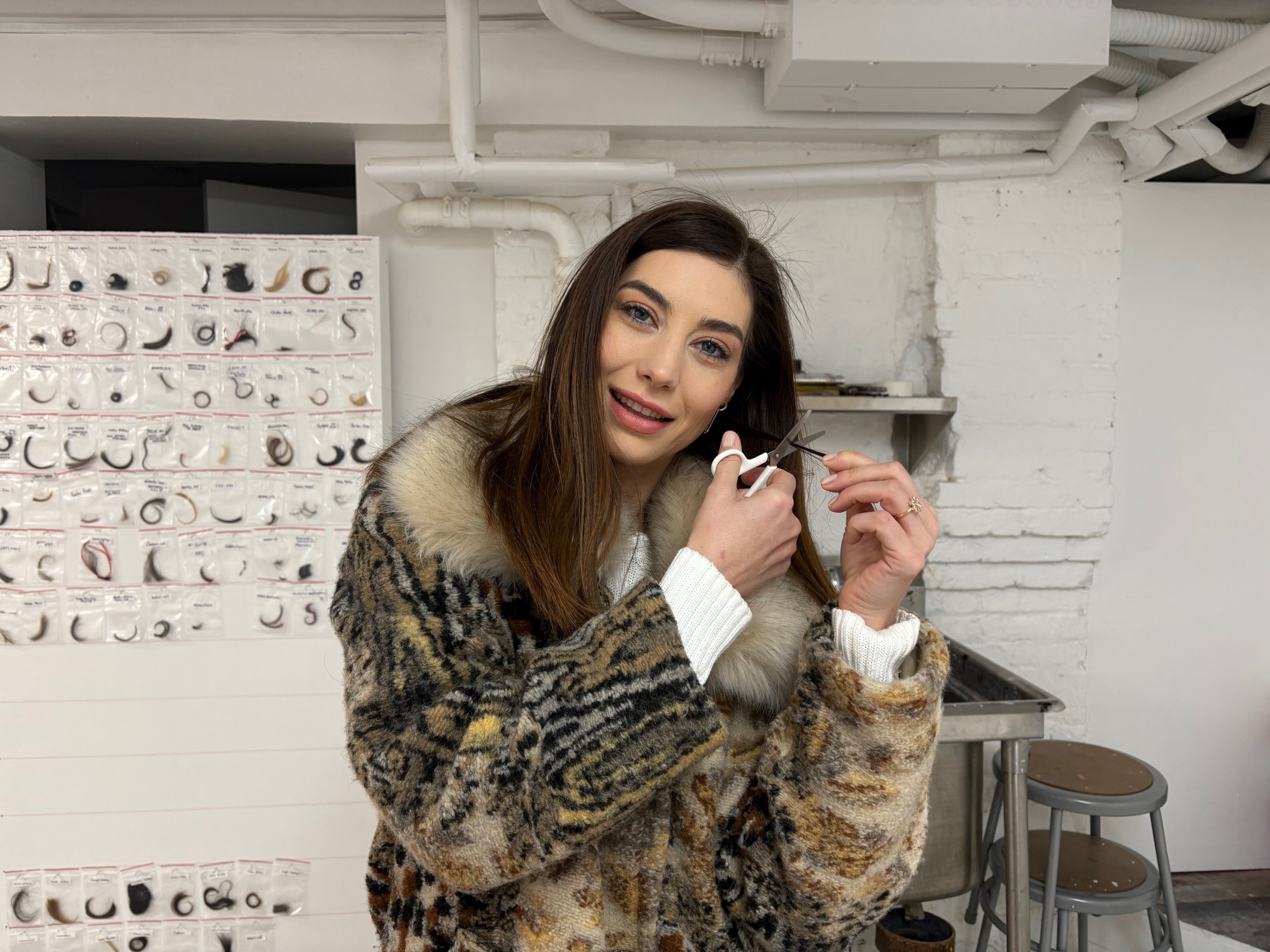
This year, Jolie’s atelier took on another mission: supporting Afghan women. Through showcasing traditional crafts and artworks, the space has become a platform for raising funds and providing visibility for women artisans to stand on their own. Each handmade piece represents survival and maybe the first step toward freedom.
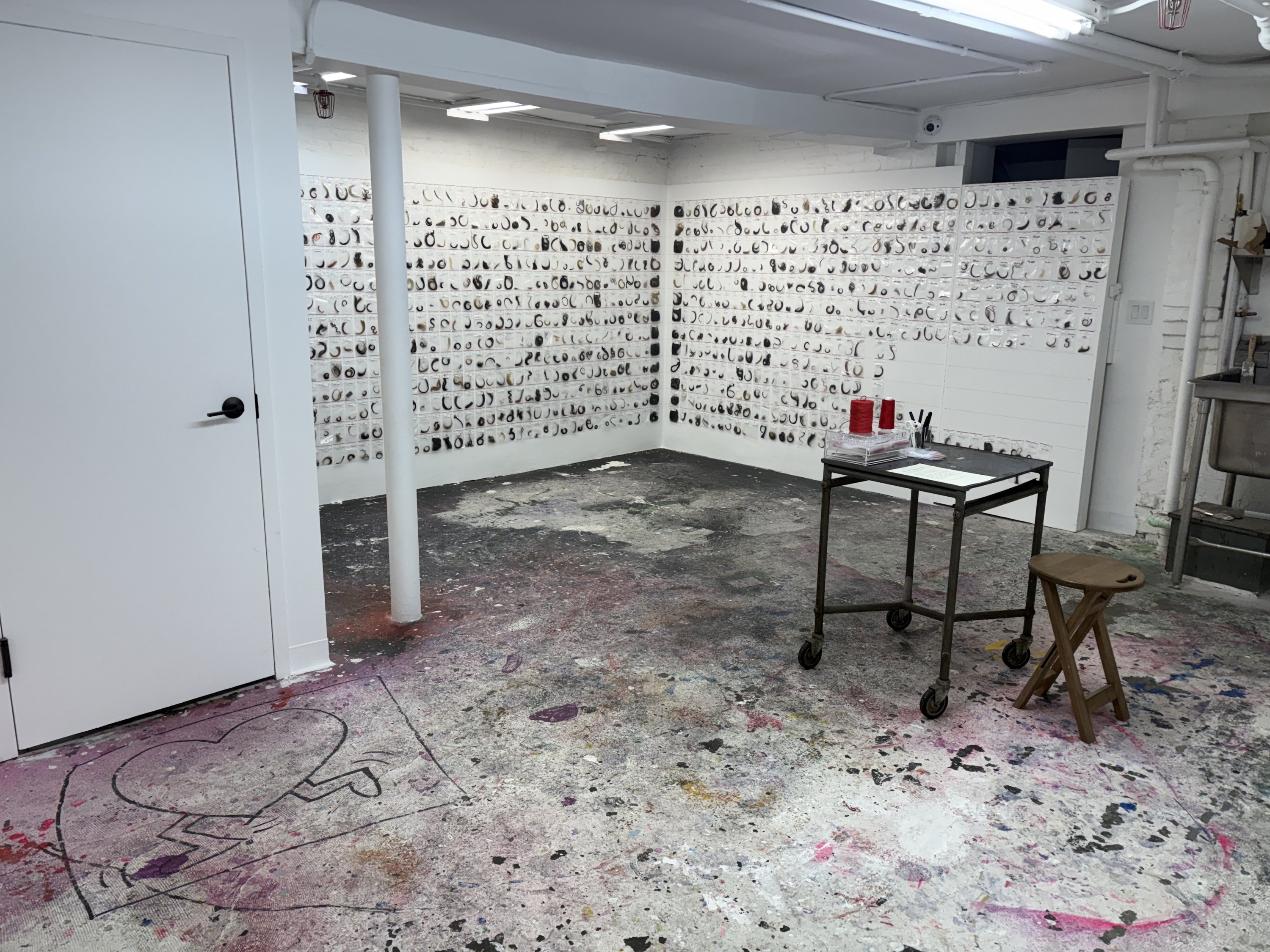
At the heart of this initiative is Sahar Halaimzai, senior director of the Afghanistan Initiative for the Malala Fund. The atelier has a dedicated corner for the fund. When I asked, “Why Malala?” I was told it’s named after education activist Malala Yousafzai. The mission? To champion education for girls and women in challenging regions. Under Halaimzai’s leadership, the fund is building an ecosystem that nurtures educational and economic empowerment for Afghan women.
Jolie’s work extends beyond art. In the cafe area, she collaborates with Eat Offbeat, a catering project run by refugee chefs from all over the world. This isn’t just about food – it’s about storytelling through taste. The menu features dishes from Yemen, Syria, Sri Lanka, Venezuela and beyond. Each plate tells a story. Each spice carries a memory. The cafe is not only a culinary adventure but a space of cultural fusion and empathy.
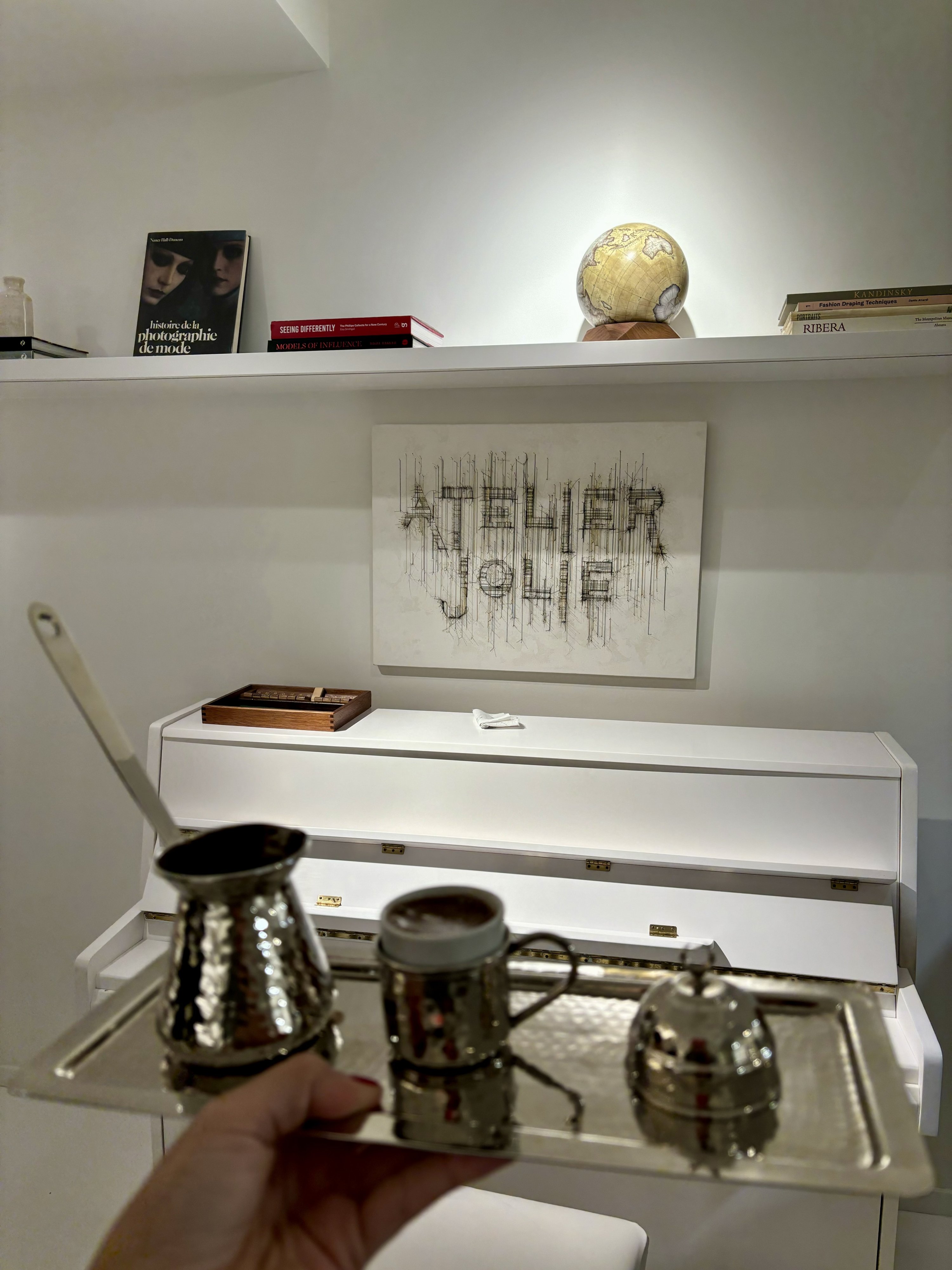
By employing refugees, Jolie and Eat Offbeat are doing more than serving food. They are breaking stereotypes, creating jobs and offering dignity. The cafe becomes a stage where resilience is plated and served. It highlights the challenges faced by displaced people while celebrating their skills and heritage.
